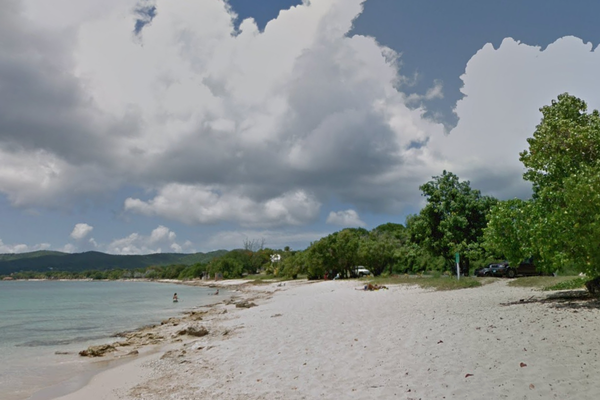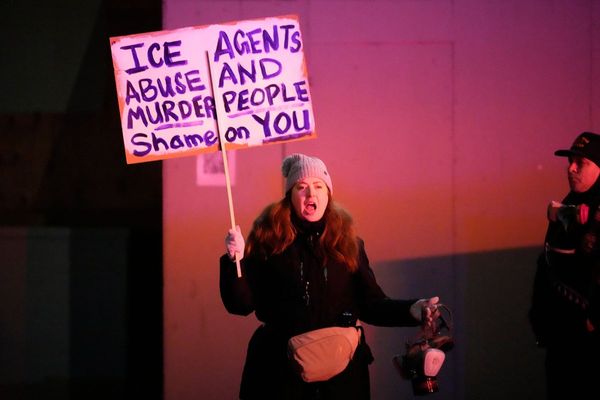
An editorial in the Weekly Times has delivered a rare sharp rebuke to Barnaby Joyce post-election, urging him and the National party to concede climate change is real and will affect all parts of the country, not just “leafy suburbs” in the city.
Known as the “bible of the bush”, the Victoria-based News Corp newspaper dedicated to rural and particularly agricultural issues has accused Joyce of “not reading the play” from the weekend’s election results.
“The lessons for Joyce and co are right before their eyes with increased support for two of their own. Darren Chester in Gippsland and Kevin Hogan in Page, both of whom believe climate change is real,” the editorial says.
“The climate schism within the Nationals ranks is already playing out with rumblings of a break away from the Liberals and jockeying for party leadership positions.
“But what must happen first is a concession from the deniers that climate change is real and will affect all parts of the country, not just the leafy suburbs of Melbourne and other capital cities.”
The intervention from the News Corp-owned masthead comes less than a week before the Nationals leadership ballot. It piles pressure on Joyce, who is facing a split within his party over its future direction, particularly when it comes to the issue of climate change.
Former Nationals leader Michael McCormack has not ruled out standing for the leadership and has highlighted the fact that Joyce’s name was actively used in campaign messages against the Coalition in the cities.
Chester told The Project he was considering standing as leader because the party’s immediate challenge is to work out how to appeal to younger people and women.
He warned the Nationals were a drag on the Liberals’ votes in cities and rejected his leader’s suggestion the party did well to hold all their seats.
“It’s a bit like a surgeon coming out of the operation saying the operation was a great success but the patient died,” Chester said.
“We lost government on the weekend and that means we lost our capacity to influence policies on behalf of regional Australia who we represent.”
Chester said he was currently canvassing support for leadership, though he is unlikely to have the numbers, particularly among National MPs in Queensland.

McCormack and Chester represent a split between south-eastern National MPs who want a softer stance on issues such as climate change and the northern Nationals and LNP members in Queensland, including Joyce, who have been more sceptical.
The split – characterised as the Barnaby Line – became clear in the election, as Joyce was left off campaign material in Victorian seats such as Nicholls, which delivered a 25% swing in primary votes to a centre-right independent.
In a curious piece of timing given the federal leadership debate, Victorian Nationals leader Peter Walsh issued a statement on Tuesday underlining that his state party continued to stand with regional Victorians committed to action on climate change.
Walsh told Guardian Australia that climate continued to be one of the key priorities for regional Victorians and the party was currently working on their 2030 targets in conjunction with the state Liberal party.
“People have different ‘top of their list’ priorities for federal or state governments. But climate is a consistent one that people want more to be done, but they want it done in a sensible and structured way,” Walsh said.
Outgoing resources minister and Queensland MP Keith Pitt said he would back in Joyce as leader and said it was too early look at lessons from the elections while postal votes were still being counted.
“Until that’s finalised I don’t want to get into the debate about which went where. But what we’ve seen is very clear support for people like Kevin Hogan, who’s come through a really tough period of time for him and his people.”
Joyce ally Matt Canavan urged his colleagues to declare if they wanted to run for the leadership to be “upfront and honest with people”.
He said the key issue at the election was the cost of living, not climate change.
“We failed to prosecute that because we signed up to net zero. We couldn’t really point out the cost of crazy radical environmental action and because we failed to do that we lost government,” Canavan said.
But exit polls done in key marginals found climate and environment policy was the top issue for voters in those electorates.
Seats included the Labor-held seat of Gilmore on the New South Wales south coast, Hogan’s seat of Page on the NSW north coast and the Labor-held seat of Eden-Monaro in southern NSW. Gilmore and Eden-Monaro were badly affected by the 2020 bushfires and Page includes Lismore, which was hit by flooding.
The polling, conducted for Farmers for Climate Action, found more than 70% of voters considered “effective climate change” policies important to their vote. Between 42-44% of voters said climate change and environment was in the top three issues informing their vote.
The Weekly Times editorial says in spite of Joyce’s “spruiking” that his party held all its seats, it is an inescapable truth that his party lost support all over the country, “the reason being mixed messaging on the commitment to net zero emissions”.
“The climate change scepticism pedalled by Joyce and senator Matt Canavan played out last year when they were dragged kicking and screaming to a commitment on net zero by 2050,” the editorial said.
“It provided powerful impetus for the teal independents to make successful raids on Coalition held city seats such as Kooyong in Melbourne and Wentworth in Sydney.”







